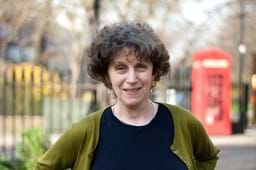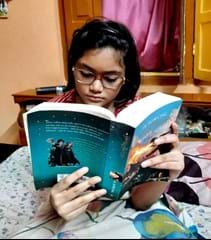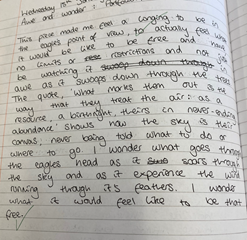We have entered a new phase in education, the ‘Research-led Education Phase’. In principle that’s an excellent thing. Drifting along doing things in classrooms without considering their impact is not a good way of making sure that pupils get the most out of their education. The new focus can be seen on many new education blogs, and at events like ‘researchED 2013 – Working out what works’, where many different angles on educational research were presented and debated. Teachers learning how to read research, discuss and critique it, rather than accept it at face value, is undoubtedly a good thing.
But along with these critical views of research there is also a climate in which research has shrunk to something very narrow, based on quantitative testing and trials that are only designed to answer the question ‘What works?’ This kind of testing, imported directly from research in other spheres such as medicine, provides a set of seemingly scientific answers to what are not necessarily the right questions. ‘What works’ is only one of a range of questions one might want to research in classrooms, to examine what makes a difference to pupils’ learning. ‘What works to raise Ds to Cs?’ is a question that is frequently asked, but a whole range of other questions cluster round even this seemingly clear-cut, simple one. ‘What works in the short term?’ ‘Is this the same as the longer term?’ ‘Does what works now last?’ ‘Does what works to raise Ds to Cs make pupils better learners in other aspects of their schooling, or in their future lives as literate and competent citizens?’ Equally, altogether different questions, such as ‘What do pupils need?’ or ‘Why do some pupils have blocks to certain kinds of learning?’ might yield very different answers.
If we narrow our questions so that we only ask the ‘What works?’ ones, so favoured by government-assisted funding bodies like EEF and others, then we fail to ask other questions that might provide equally important steers for educational practice. We squeeze out any questions that can’t be answered using numerical data. Many of these questions are the more subtle, important ones about the impact of schooling on pupils’ attitudes to learning, their thinking, their enjoyment and their ability and enthusiasm for tackling problems, engaging with ideas and going on to learn more. ‘How do you engage pupils in their own learning?’ or ‘How do you encourage pupils to read for pleasure?’ are not easily measured by numerical tests, nor can they be assessed in a short time frame. Finding out about the impact of different elements of education on reading for pleasure inevitably involves attitudinal research and long-term study, rather than quick data-driven tests, yet time and again reading for pleasure is shown to be a better measure of long term educational success than any other. If we fail to ask questions about reading for pleasure because it’s hard to measure, then we risk focusing our time, our funding and our collective efforts only on those things that are easy to measure.
By contrast with this kind of Gradgrindian obsession with certain kinds of data, there are some very important and serious ways in which teachers can and should be making use of research – a different kind of research. Along with the obsession with quantitative data has come a new kind of teacher education, in which university learning is eschewed in favour of training in a school context. I would hate to knock what schools can do for new teachers – some are brilliant at preparing them for a life of teaching. But there’s another kind of research that all trainee teachers, of English or any other subject, ought to have had access to, and that’s the kind of research done by key thinkers and writers, both from the past and present, who have been significant in developing philosophical, psychological, sociological, pedagogic and other ways of thinking. Here I’m thinking about writers like Piaget, Vygotsky, Douglas Barnes, James Britton, Harold Rosen, Jerome Bruner, Paulo Freire among others. Vygotsky wasn’t worried about C to D grades – he was a seminal thinker about how it is that children learn language and the ways in which that is a social, rather than an individual process. Reading Vygotsky won’t tell you how to get a D to a C in easy steps but it will give you a deep and lasting underpinning for the principles of how children learn that will see you through in all your teaching. It will allow you to ride the waves of educational reform and stay afloat, however small your boat, because you have a well-made, robust craft that can steer its own course through choppy seas.
Another form of research that is equally important and is perhaps gaining more credence in our current world, is teachers’ researching their own practices. John Richmond and others, in the 1970s and 80s, led the way, with Becoming our Own Experts (1982), encouraging teachers to see the relationship between theory and practice in education, by making their own classrooms arenas for serious research into pedagogy in English teaching. Having film clips, or transcripts of classroom interactions gave teachers a chance to analyse together what exactly was going on. Thinking about talk and group work in particular, was hugely enhanced by close observation of the processes involved and the role of the teacher. The new development of blogs, twitter, teachmeets and other such innovations, has led to a wonderful burgeoning of teachers sharing their experiences, their thinking, their expertise and examples of their classroom work. However, it seems to me to be important that these kinds of sharing do not become an alternative to other more sustained forms of research, but instead, sit alongside them, providing a huge amount of energetic and vibrant thinking but also allying themselves to other valuable forms of research and CPD.
Sometimes one reads people zealously proclaiming the virtues of one kind of approach over another. University-led training is dead! CPD by training organisations isn’t the best way of doing it! And so on. The truth is that all of these forms of teacher development (self-initiated, in the school, led by communities of teachers in local areas, online, provided by universities, training organisations, books, blogs or whatever), have the potential to develop teachers’ practice and change their thinking, if they are asking the right questions, and if they are drawing on a range of different kinds of research – not just the kind that can be created in a year of randomised controlled trials, or someone telling someone else what they did in their classroom to get a D grade student to reach a C.




